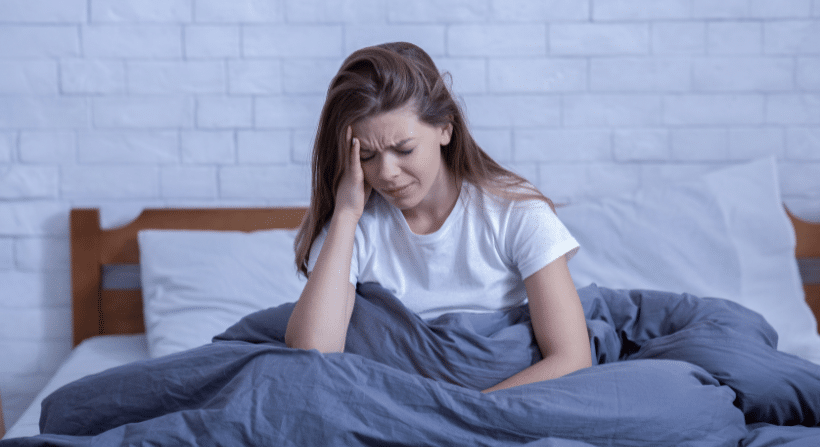Dealing with bed bugs can be a nightmare, not only for the physical discomfort they cause but also for the stress and sleep deprivation they induce. The relentless itching, anxiety, and fear of being bitten can take a toll on both mental well-being and quality of sleep. In this blog, we’ll delve into the detrimental effects of stress and sleep deprivation caused by bed bugs and explore strategies to cope with and alleviate these challenges.

Understanding the relationship between bed bugs, stress, and sleep deprivation is essential for finding effective solutions and restoring a sense of peace and comfort to your life.
Stress and Sleep Deprivation With Bed Bugs
Dealing with bed bugs can indeed be a stressful and exhausting experience, often leading to sleep deprivation. Here’s why:
- Stress from Infestation: The presence of bed bugs in your home can be highly stressful. The thought of bugs crawling on you while you sleep or hiding in your furniture can cause significant anxiety and worry.
- Disruption of Sleep: Bed bugs are most active at night, which can disrupt your sleep patterns. Constant itching and discomfort from bed bug bites can make it difficult to fall asleep and stay asleep throughout the night.
- Physical Discomfort: Bed bug bites can cause itching, redness, and swelling, leading to physical discomfort that further disrupts sleep. Constant scratching can also result in skin irritation and secondary infections.
- Financial Burden: Dealing with a bed bug infestation often requires professional pest control services, which can be expensive. The financial burden of treating the infestation adds to the stress of the situation.
- Psychological Impact: The presence of bed bugs can have a psychological impact, leading to feelings of shame, embarrassment, and isolation. This can exacerbate stress and make it even more challenging to cope with the situation.
- Constant Vigilance: Once you’ve experienced a bed bug infestation, it’s natural to be constantly on edge, worried about a recurrence. This hyper-vigilance can lead to ongoing stress and anxiety, making it difficult to relax and get adequate sleep.
To cope with stress and sleep deprivation caused by bed bugs:
- Seek Support: Talk to friends, family members, or a therapist about your feelings and experiences. Having a supportive network can help alleviate stress and provide emotional support during this challenging time.
- Practice Relaxation Techniques: Engage in activities that promote relaxation, such as deep breathing, meditation, or yoga. These techniques can help reduce stress levels and improve sleep quality.
- Maintain a Healthy Routine: Stick to a regular sleep schedule, eat nutritious meals, and exercise regularly. Taking care of your physical health can improve your resilience to stress and help you cope better with the challenges of dealing with bed bugs.
- Address the Infestation: Take proactive steps to address the bed bug infestation, such as hiring a professional exterminator or using DIY methods to eliminate the bugs. Taking action to solve the problem can alleviate some of the stress associated with the infestation.
- Create a Relaxing Sleep Environment: Make your bedroom a comfortable and peaceful space conducive to sleep. Use calming colors, invest in a comfortable mattress and bedding, and eliminate distractions that may disrupt your sleep.
- Practice Good Self-Care: Take time for self-care activities that bring you joy and relaxation, whether it’s reading a book, taking a warm bath, or spending time outdoors. Taking care of yourself is essential for managing stress and promoting overall well-being.
Read Also: 5 School Performance Impacts While Dealing with Bed Bugs


Recent Comments